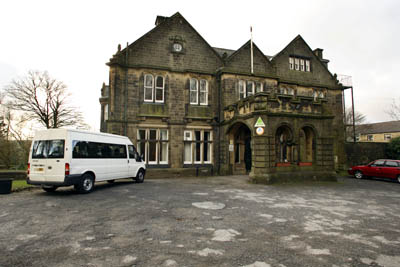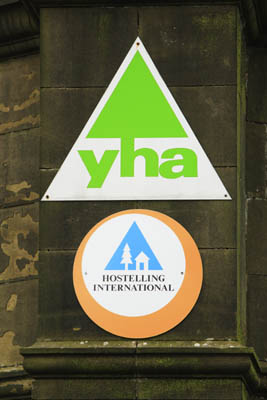 Youth hostels across England and Wales are being modernised at a cost of more than £13m.
Youth hostels across England and Wales are being modernised at a cost of more than £13m.
Haworth youth hostel is among those to benefit from the extra cash
Hostels at Ilam in the Peak District and at Pen-y-Pass in north Wales will see major revamps, with £2m spent on the former and nearly £1m on the Welsh site. Ambleside’s hostel will also see a major improvement, with £600,000 being used to upgrade the Lake District building.
The proposals were approved at the weekend, with £13.5m of cash being pledged by the YHA. The money has been released following the controversial closure of 32 hostels two years ago. Some of these have subsequently been reopened as independently run outfits, but others, such as Keld in the Yorkshire Dales, standing on both the Pennine Way and Coast-to-Coast route, are no longer available as accommodation.
Other YHA properties to benefit from the proposals will be Haworth in West Yorkshire, Grinton in North Yorkshire and Windermere in Cumbria.
In total, 37 buildings will be modernised, but a further three YHA properties, Bangor, North Wales, Great Yarmouth, Norfolk and Slimbridge, in Gloucestershire, will close at the end of the year.
The YHA says staff training will also be increased and there will be more use of local produce in its catering.
Three new hostels will open, in central London and in Lewes and Eastbourne in Sussex.
YHA chief executive Roger Clarke said: “Some people were disappointed when we announced 32 closures two years ago but we promised at the time it was a means to an end.
“We needed to close and sell less successful properties to generate the funds needed to invest in the future so it's hugely exciting that we are firmly on our way.
“When we announced a new strategy for YHA two years ago, we made a firm commitment to providing great hostels in great locations," said YHA Chief Executive Roger Clarke.
“It's all about improving the experience for guests who choose to stay with YHA and that means investing in our staff and our buildings.
“We've already started refurbishment projects and major training programmes and are ready to push ahead with the next batch of investments in places where people really want to stay.”
 The Youth Hostel Association in Britain grew from an alliance of rambling, cycling and youth organisations in the early 20th century, when the working-class masses in the country’s industrial cities started the movement for greater enjoyment of the countryside.
The Youth Hostel Association in Britain grew from an alliance of rambling, cycling and youth organisations in the early 20th century, when the working-class masses in the country’s industrial cities started the movement for greater enjoyment of the countryside.
The first hostel was opened in Germany in 1909 by schoolteacher Richard Schirrman.
For decades, the YHA hostels provided basic, simple accommodation for walkers and cyclists, and guests were expected to do a share of the chores, such as washing up and cleaning. It was only during the 1970s that visitors were allowed to arrive at hostels by car.
There has been a gradual move towards modernisation, with the abandonment of large dormitories, an increase in family rooms and the serving of alcohol, something which would have horrified some of the early pioneers of the movement.
The Foot-and-Mouth Disease outbreak of 2001 caused major problems for the YHA as numbers of visitors plummeted, resulting in a financial crisis for the organisation. International visitor numbers have also dropped following terrorist activity such as the London bombings, which mostly affected city-centre hostels.
Mr Clarke added: “It is always regrettable when we announce closures and every effort will be made to support and relocate those staff affected at these sites.
“But the YHA property network is organic. The closure of sites is unavoidable for YHA, while the creation of good quality facilities in excellent locations is a necessity for our survival and growth.”
The YHA surveyed 161 properties operated directly 161 properties operated directly out of its network of 208 Youth Hostels before agreeing its programme.